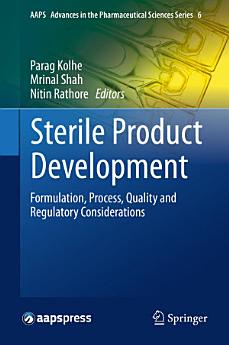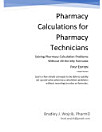Sterile Product Development: Formulation, Process, Quality and Regulatory Considerations
About this ebook
• Formulation approaches that discuss a variety of dosage forms including protein therapeutics, lipid-based controlled delivery systems, PEGylated biotherapeutics, nasal dosage form, and vaccines
• Process, container closure and delivery considerations including freeze-thaw process challenges, best practices for technology transfer to enable commercial product development, innovations and advancement in aseptic fill-finish operations, approaches to manufacturing lyophilized parenteral products, pen / auto-injector delivery devices, and associated container closure integrity testing hurdles for sterile product closures
• Regulatory and quality aspects in the areas of particulate matter and appearance evaluation, sterile filtration, admixture compatibility considerations, sterilization process considerations, microbial contamination investigations and validation of rapid microbiological methods, and dry and moist heat sterilizers
This book is a useful resource to scientists and researchers in both industry and academia, and it gives process and product development engineers insight into current industry practices and evolving regulatory expectations for sterile product development.
Ratings and reviews
- Flag inappropriate
About the author
Parag Kolhe, Ph.D., is People Leader-Senior Principal Scientist at Pfizer in the department of Biotherapeutic Pharmaceutical Sciences in Chesterfield, MO. His area of work includes formulation, process development, QbD approaches, process validation for late stage vaccine and monoclonal antibody biotech products. He is the author of various peer reviewed publications and patent applications in the area of polymeric drug delivery system and biotherapeutic product development. He received his Ph.D. from Wayne State University in the area of Material Science and Engineering.
Mrinal Shah, Ph.D., is a Senior Process Development Engineer within the R&D group at LifeCell Corporation in Bridgewater, NJ where his focus and expertise lies in process design, scale-up, validation and technology transfer for tissue and medical device products. His research experience and interest spans tissue regenerative medication and parenteral and ophthalmic product development. Dr. Shah has authored several peer reviewed publications in the field of phase separation and aggregation in protein solution systems. He received his Ph.D. degree in Chemical & Biomolecular Engineering from the University of Houston and has also been awarded postdoctoral fellowships at Houston Advance Research Center and the Center for Biotechnology and Interdisciplinary Studies, Rensselaer Polytechnic Institute.
Nitin Rathore, Ph.D, is a Principal Scientist in Drug Product Process Development at Amgen Inc., Thousand Oaks, California. His group is involved with the development of liquid and lyophilized protein drug products. Dr. Rathore has expertise in the area of formulation, fill & finish and drug delivery including process characterization, scale-up and technology transfer of early to late stage biopharmaceuticals. He has authored numerous publications including original research articles, book chapters and scientific presentations on drug productdevelopment. Dr. Rathore received his Ph.D. degree in chemical and biological engineering from University of Wisconsin-Madison, Madison, WI.






